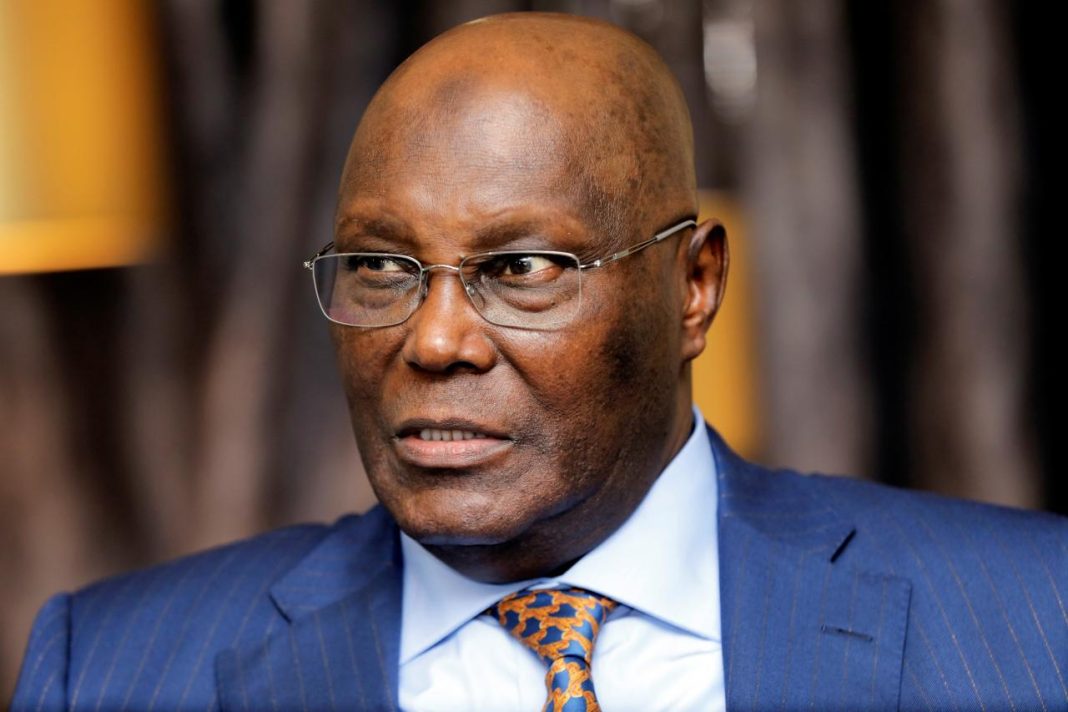ABUJA, Nigeria – Former Vice president of Nigeria, Atiku Abubakar, has outlined a comprehensive response to Nigeria’s current economic crisis, critiquing President Bola Tinubu’s approach and presenting his policy alternatives.
In a detailed statement issued on Sunday, November 3, 2024, the Peoples Democratic Party (PDP) candidate criticised what he described as the “trial-and-error” nature of Tinubu’s policies, claiming they lack the planning and structure necessary to shield Nigerians from inflation, currency depreciation, and the fallout of subsidy reforms.
Abubakar expressed empathy for citizens grappling with Nigeria’s economic challenges, emphasising the importance of public engagement and stakeholder consultations in addressing these issues.
“I hope Tinubu and members of his administration are humble enough to borrow one or two things from our ideas in the interest of the Nigerian people,” the former vice president said.
Key Elements of Abubakar’s Proposed Economic Strategy
- Gradual Economic Reforms
Abubakar highlighted a sequenced approach to reforms, arguing that simultaneous adjustments in exchange rates, electricity tariffs, and fuel prices could exacerbate economic instability. “Removing subsidy on petroleum products without a stable exchange rate is counterproductive,” he explained, stressing the need for balanced reforms to achieve fiscal and monetary congruence. - Empathy and Public Communication
The former vice president noted the importance of empathetic and transparent communication, explaining that he would have “communicated more effectively with the people, with civility, tact, and diplomacy.” He added that trust between government and citizens is vital, especially when implementing challenging economic reforms. - Social Protection Programmes and Economic Stimulus
Abubakar outlined a robust social safety net for vulnerable Nigerians, alongside a proposed Economic Stimulus Fund (ESF) with an initial $10 billion investment. He suggested that proceeds from subsidy removal should support sectors such as healthcare, education, and infrastructure while bolstering youth employment and MSMEs. - Reforming Public Institutions and Tackling Corruption
At the core of Abubakar’s strategy is a commitment to tackling corruption, particularly within state-owned enterprises like the Nigerian National Petroleum Corporation Limited (NNPCL). “The subsidy regime has been an avenue for rent-seeking,” he stated, pledging to reform the NNPCL and gradually privatise refineries to boost domestic refining capacity. - Gradual Removal of Fuel Subsidy
Citing his experience as vice president, Abubakar recommended a phased approach to subsidy reform, allowing for adaptation to changing conditions. He noted that many countries adopt gradual subsidy reductions, giving time for economic adjustments and minimising public disruption. - Foreign Exchange Reform
Abubakar argued for a managed floating exchange rate to avoid the pitfalls of a rigid or uncontrolled rate system. He claimed that a gradualist FX approach would stabilise Nigeria’s currency while allowing the Central Bank to manage inflation and economic growth.
Infrastructure and Security Reforms
Abubakar’s proposal also included a focus on infrastructure development, with a dedicated Infrastructure Development Unit to drive a $25 billion fund focused on private-sector-led projects.
Additionally, he prioritised security reform, committing to enhanced welfare for security personnel and an emphasis on diplomacy and improved border control as part of a broader conflict resolution strategy.
Concluding his statement, Abubakar expressed hope that his ideas could provide guidance for the Tinubu administration.
He maintained that his approach would offer Nigerians a clear pathway toward stability and prosperity, presenting a detailed vision that he believes could mitigate the nation’s current economic hardships.







